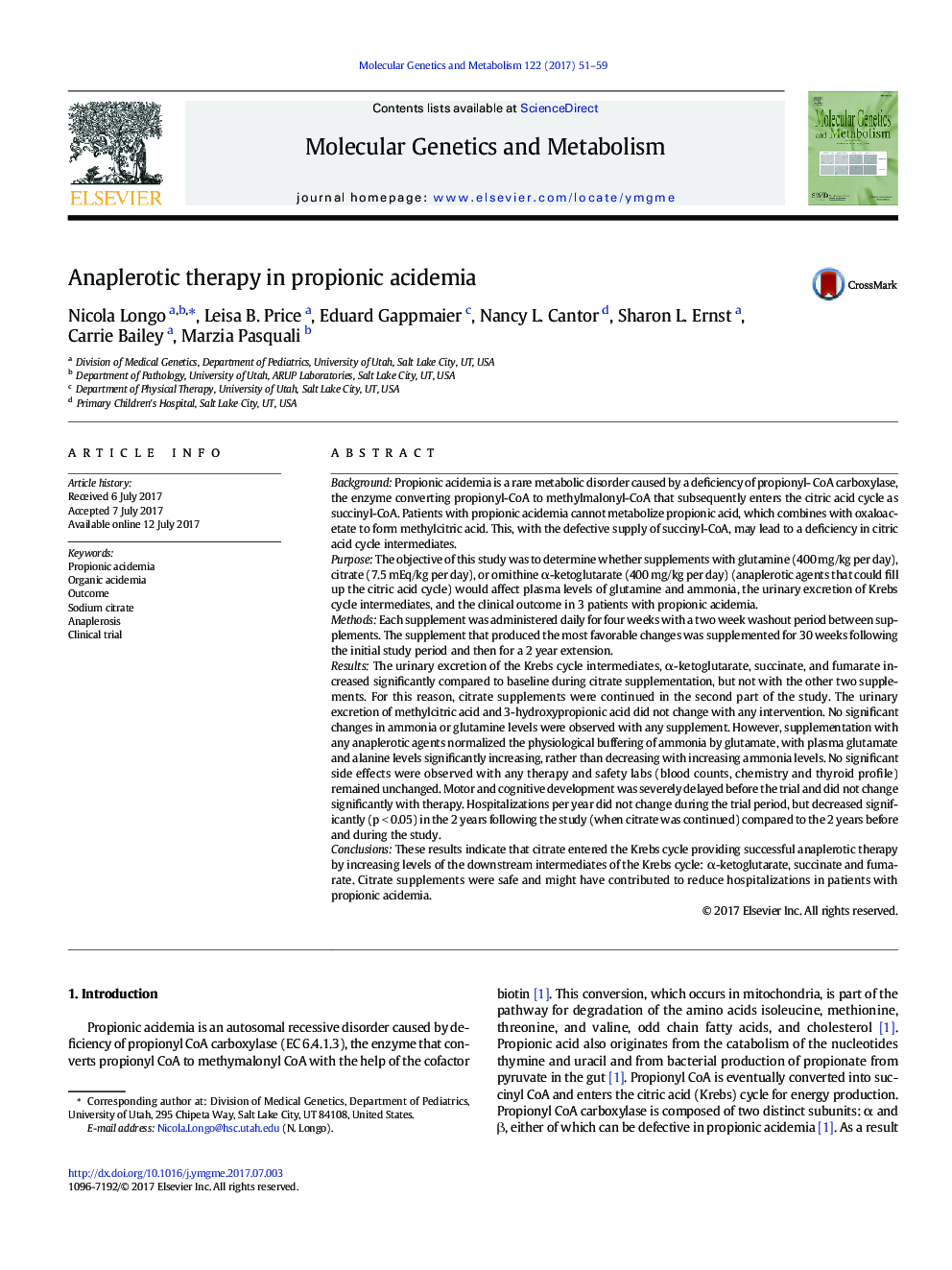| کد مقاله | کد نشریه | سال انتشار | مقاله انگلیسی | نسخه تمام متن |
|---|---|---|---|---|
| 5513890 | 1541553 | 2017 | 9 صفحه PDF | دانلود رایگان |
BackgroundPropionic acidemia is a rare metabolic disorder caused by a deficiency of propionyl- CoA carboxylase, the enzyme converting propionyl-CoA to methylmalonyl-CoA that subsequently enters the citric acid cycle as succinyl-CoA. Patients with propionic acidemia cannot metabolize propionic acid, which combines with oxaloacetate to form methylcitric acid. This, with the defective supply of succinyl-CoA, may lead to a deficiency in citric acid cycle intermediates.PurposeThe objective of this study was to determine whether supplements with glutamine (400 mg/kg per day), citrate (7.5 mEq/kg per day), or ornithine α-ketoglutarate (400 mg/kg per day) (anaplerotic agents that could fill up the citric acid cycle) would affect plasma levels of glutamine and ammonia, the urinary excretion of Krebs cycle intermediates, and the clinical outcome in 3 patients with propionic acidemia.MethodsEach supplement was administered daily for four weeks with a two week washout period between supplements. The supplement that produced the most favorable changes was supplemented for 30 weeks following the initial study period and then for a 2 year extension.ResultsThe urinary excretion of the Krebs cycle intermediates, α-ketoglutarate, succinate, and fumarate increased significantly compared to baseline during citrate supplementation, but not with the other two supplements. For this reason, citrate supplements were continued in the second part of the study. The urinary excretion of methylcitric acid and 3-hydroxypropionic acid did not change with any intervention. No significant changes in ammonia or glutamine levels were observed with any supplement. However, supplementation with any anaplerotic agents normalized the physiological buffering of ammonia by glutamate, with plasma glutamate and alanine levels significantly increasing, rather than decreasing with increasing ammonia levels. No significant side effects were observed with any therapy and safety labs (blood counts, chemistry and thyroid profile) remained unchanged. Motor and cognitive development was severely delayed before the trial and did not change significantly with therapy. Hospitalizations per year did not change during the trial period, but decreased significantly (p < 0.05) in the 2 years following the study (when citrate was continued) compared to the 2 years before and during the study.ConclusionsThese results indicate that citrate entered the Krebs cycle providing successful anaplerotic therapy by increasing levels of the downstream intermediates of the Krebs cycle: α-ketoglutarate, succinate and fumarate. Citrate supplements were safe and might have contributed to reduce hospitalizations in patients with propionic acidemia.
Journal: Molecular Genetics and Metabolism - Volume 122, Issues 1â2, September 2017, Pages 51-59
